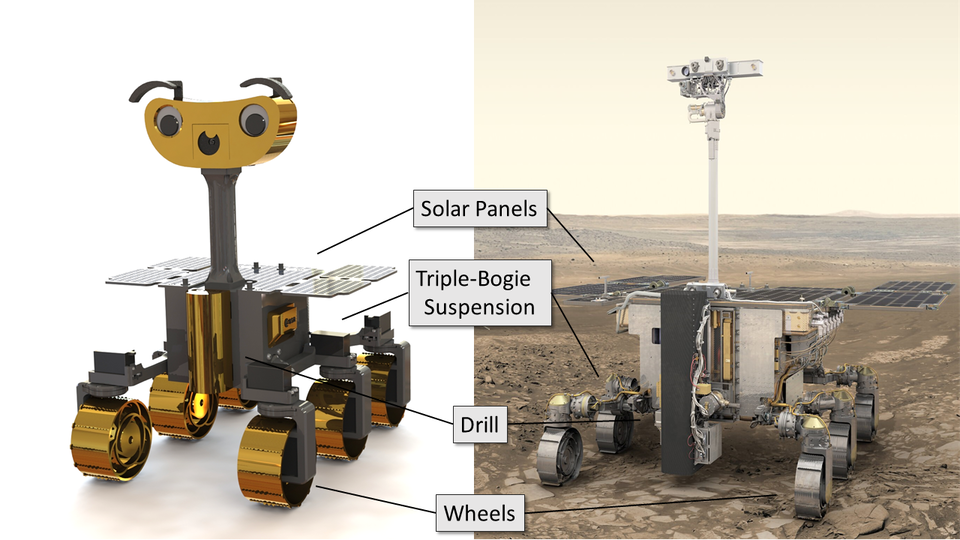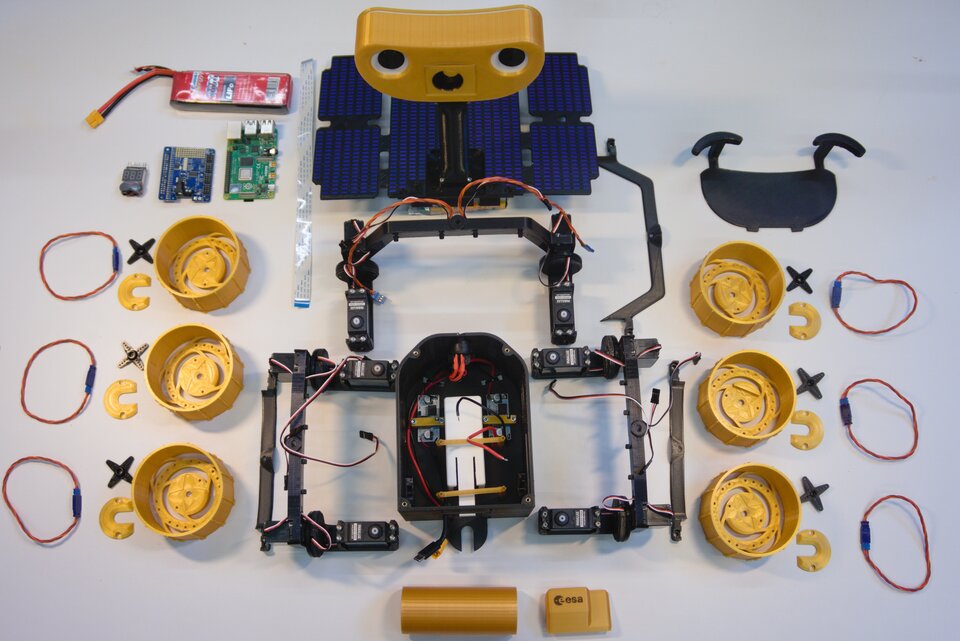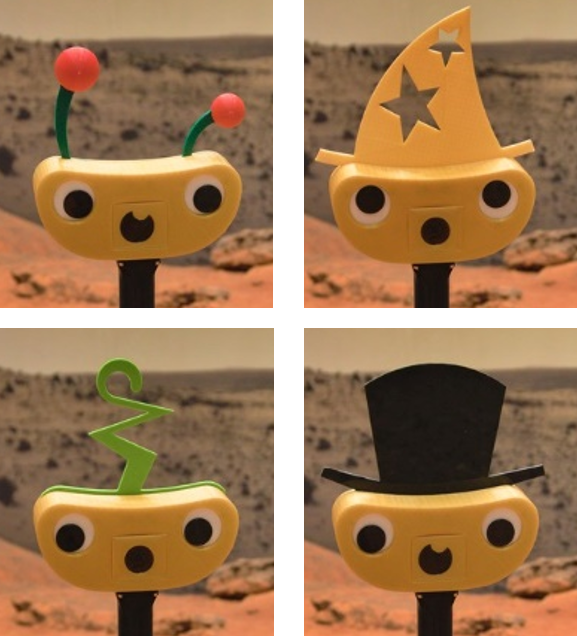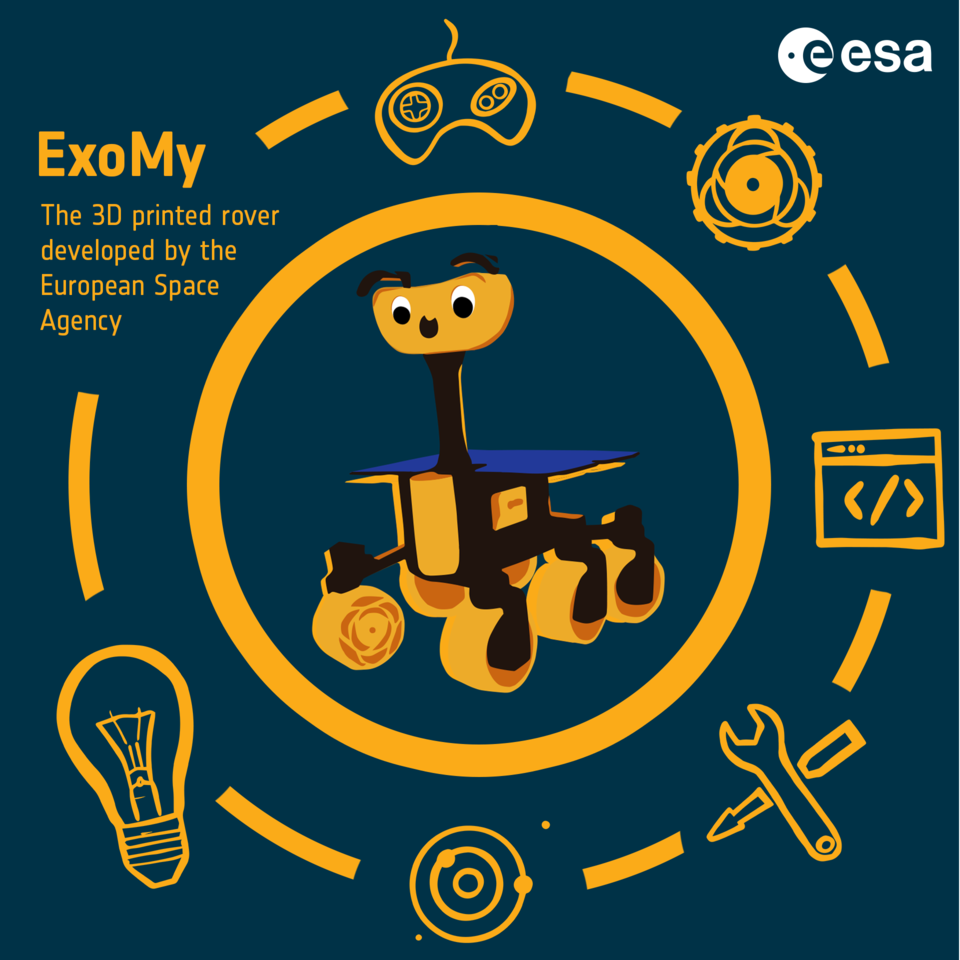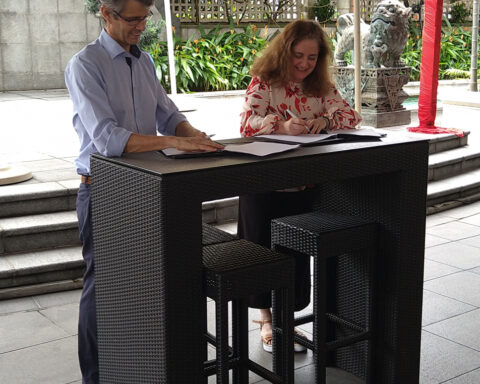The six-wheeled ExoMy rover was designed by ESA’s Planetary Robotics Laboratory, which specializes in developing locomotion platforms and navigation systems to support ESA’s planetary exploration missions.
“Anyone with a 3D printer can build their own ExoMy, at an estimated budget of €500 or less,” explains Swiss trainee Miro Voellmy. “The source code is available on GitHub along with a step-by-step assembly guide and tutorials.
“We focused on making the design as affordable and accessible as possible. It uses a Raspberry Pi computer and off-the-shelf electronic parts available online and at any hobby shop. Our hope is that school or university students will make their own ExoMy, to become familiar with robotics, and learn about the full-sized ExoMars rover, which is scheduled for launch in 2022.”
Enthusiasts all around the world have already built their own ExoMy rovers. Its structural parts take around two weeks to 3D print out of PLA, a biodegradable material made out of plant starch.
The 42 cm high rover reproduces key features of its 2 m tall big ‘sister’ on a non-functional basis, including a drill, solar panels across its back wings and a camera mast featuring a customisable smiley face, mouth and hat.
“We aimed to make the design as accessible and fun as possible,” says German trainee Maximillian Ehrhardt. “ExoMy actually began as a one-off demonstrator at the ESA Open Day at ESTEC here in the Netherlands in 2018. Visitors of all ages could drive it across the lab’s ‘Mars Yard’, a test facility that mimics Martian terrain. It was a big hit, which made us think about a version that people could build for themselves.”
ExoMy also reuses Rosalind Franklin’s ‘triple-bogie’ suspension design, which allows it to cross high obstacles as high as its own wheelwhile keeping them stably on the ground.
Each wheel has its own motor, and their tread has protrusions to assist traction over rough ground. But flexible sleeves can also be printed out to slid over the wheels for smoother passage over level surfaces.
“Steering is performed using a gamepad or else a web browser on a mobile device,” adds Belgian trainee Lorenzo Cervantes. “From what we’ve seen during past Open Day events, kids are actually often better at driving ExoMy than their parents.”
“ExoMy is more than a toy as it can serve as a low-cost research and prototyping platform for robotic experiments,” adds Miro.
“And this version of the rover is not a frozen design, with people coming back with ideas for improvements, such as a pan and tilt camera on the mast, which they are offering to help out on. For internal testing, we are also working on a mini-version of the speed-optimised Sample Fetch Rover planned as part of ESA’s contribution to the International Mars Sample Return endeavour.”



